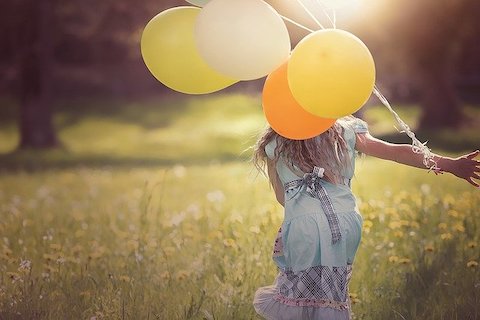You CAN Heal The Wounds of Abusive Parenting
By Dr. Margaret PaulOctober 04, 2020
The outlook doesn't have to be bleak for those of us who had abusive or neglectful parenting.
 "There are clear links between an individual's psychological coping strategies and his or her physiological coping strategies. Both are established in infancy and toddlerhood and tend to persist through life." –Sue Gerhardt, "Why Love Matters," p. 77
"There are clear links between an individual's psychological coping strategies and his or her physiological coping strategies. Both are established in infancy and toddlerhood and tend to persist through life." –Sue Gerhardt, "Why Love Matters," p. 77
Sue Gerhardt paints quite a bleak picture of our chances of being whole and happy if we didn't receive the love we needed as infants and toddlers. At the end of her excellent book, 'Why Love Matters,' she does say that people can heal with extensive and expensive psychotherapy. But what if you can't afford expensive psychotherapy?
She states in her well-researched book that part of the brain – the part of the prefrontal cortex that is responsible for being able to manage and regulate very painful feelings – does not get developed when we have parents who were unable to lovingly regulate our feelings for us as infants and toddlers. Can this part of the brain develop in adulthood?
The Brain Has Neuroplasticity, Which Means We Can Change It At Any Age
I haven’t done the brain research to know if Inner Bonding changes this part of the brain, so I can't state scientifically that it does. However, I know from my own experience and the experience of my clients that this is the case. I know that my brain FEELS very different than it did before Inner Bonding, and I often hear from my clients, “My brain is changing!”
We know from what happens with stroke victims or people who have suffered other forms of brain damage or paralysis that new brain pathways can be developed. This is also what happens with Inner Bonding.
When I was a baby and toddler, my parents did not regulate my feelings, nor did they know how to regulate their own feelings. I grew up, like so many of us, not knowing how to manage my big feelings. Instead, I turned to food and sugar, anger, blame and other forms of acting out and addictive behavior when my feelings felt too big and painful for me to manage.
This is no longer true because my brain now knows how to manage big, painful feelings.
As an adult, I had years of psychotherapy, but it wasn’t until I practiced Inner Bonding that my brain changed. Anyone who is motivated to learn to love themselves can learn this without years of expensive therapy. The consistent practice of Inner Bonding is what creates the new neural pathways in the brain for the loving adult.
The practice of Inner Bonding, which includes learning to manage our feelings through our spiritual connection, is the key to healing ourselves from early trauma and neglect. Without a spiritual connection, which is a key element of Inner Bonding, there is no true healing. Spirit can do miraculous things, and when we decide to open to learning about loving ourselves and learn to compassionately attend to our feelings, Spirit comes in to support us in creating the new neural pathways in our prefrontal cortex that we need to lovingly manage our painful feelings, and to consistently show up as a loving adult.
Because of my consistent Inner Bonding practice, I react totally differently today than I did before Inner Bonding.
Of course, there are other practices that can accomplish the same changes. One thing they all have in common with Inner Bonding is that they include a spiritual component. It is only through our spiritual connection that we can bring in enough love to heal the damage that was done to us by unloving parenting.
Love is the great healer, and love is spirit. Love is the most powerful force in the universe, so of course it can heal the effects of a lack of love. We each have the power to facilitate our own healing through bringing love to ourselves, and we each have the power to facilitate others' healing by bringing love through to them – through our unconditional caring and holding of others. What we can't do is bring this unconditional love through to others in a way that heals, without first bringing it through to ourselves - which is what the consistent practice of Inner Bonding eventually enables us to do.
So, while I love Sue Gerhardt's book, I do not share her bleak outlook regarding healing from abusive and/or neglectful parenting. We CAN heal!
Join Dr. Margaret Paul for her 30-Day at-home Course: "Love Yourself: An Inner Bonding Experience to Heal Anxiety, Depression, Shame, Addictions and Relationships."
 Send this article to a friend
Send this article to a friend  Print this article
Print this article  Bookmarked 0 time(s)
Bookmarked 0 time(s)
| Related Articles |
|---|
| The Touch That Heals Trauma |
| Healing From Childhood Abuse |
Comments
| Author | Comment | Date |
|---|---|---|
| Join the Inner Bonding Community to add your comment to articles and see the comments of others... | ||

Daily Inspiration
To be an intellect, you must have proof, reason and logic. To be your own self denies proof, reason and logic. So the choice is to spend life proving what you wish to exist or to simply accept what you feel.
By Dr. Erika Chopich

 Share with Del.icio.us
Share with Del.icio.us Share with Digg
Share with Digg






